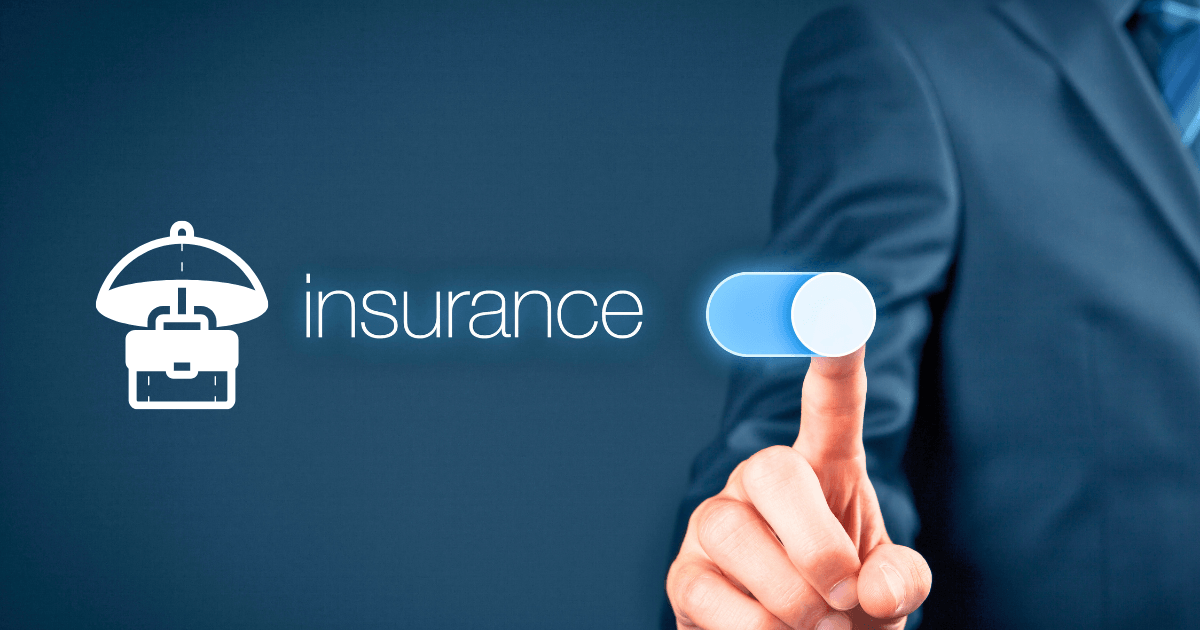Business Insurance Guide: What Online Entrepreneurs Actually Need (And What’s a Waste of Money)

Let’s be honest—business insurance isn’t the sexy part of entrepreneurship. No one launches their digital empire dreaming about liability policies. But here’s the reality: the right insurance protects everything you’ve built, while the wrong coverage drains your bank account for protection you’ll never use.
After helping dozens of online entrepreneurs navigate this confusing landscape, I’ve seen the same mistakes repeatedly: overpaying for unnecessary coverage while remaining dangerously exposed in critical areas. This guide cuts through the insurance industry jargon to give you exactly what you need—and nothing you don’t.
The Real Risks for Online Entrepreneurs in 2025
Before we dive into specific policies, let’s get clear on what we’re actually protecting against. Online businesses face distinctly different risks than brick-and-mortar operations:
- Digital asset loss: Your website, customer database, and digital products have real value
- Professional liability: Clients claiming your advice or services caused financial harm
- Cyber threats: Data breaches affecting customer information
- Income interruption: When technical issues prevent you from operating
- Physical product liability: If you sell tangible goods
Notice what’s missing? Many traditional business risks simply don’t apply to digital entrepreneurs. You likely don’t need extensive property insurance if you work from home, nor do you need the same workers’ comp coverage as a construction company.
Essential Insurance Every Online Entrepreneur Needs
1. Professional Liability Insurance (E&O)
What it covers: Claims that your professional service, advice, or digital products caused financial harm to clients.
Who needs it most: Consultants, coaches, course creators, web developers, designers, writers, and anyone providing professional services or knowledge products.
Average cost: $500-1,200 annually for most online businesses, according to Forbes Advisor.
Why it’s worth it: A single claim alleging your advice led to financial loss can cost tens of thousands in legal fees—even if you did nothing wrong. This is the policy that lets you sleep at night.
Money-saving tip: Look for policies specific to your industry rather than generic coverage. For example, a consultant-specific E&O policy will typically cost less than a general professional liability policy while providing more relevant coverage.
2. Cyber Liability Insurance
What it covers: Costs associated with data breaches, ransomware, and other cyber attacks—including notification expenses, legal fees, and regulatory fines.
Who needs it most: Any business collecting customer data, processing payments, or storing sensitive information.
Average cost: $500-1,500 annually for small online businesses, though costs vary significantly based on data volume and security measures.
Why it’s worth it: The average cost of a data breach reached $4.45 million in 2023, according to IBM’s Cost of a Data Breach Report. Even a small incident can be financially devastating without coverage.
Money-saving tip: Many insurers offer discounts for implementing basic security measures like two-factor authentication and regular data backups. These practices not only reduce your premiums but also decrease your actual risk.
3. General Liability Insurance
What it covers: Third-party bodily injury, property damage, and personal injury claims like defamation or copyright infringement.
Who needs it most: Entrepreneurs who meet clients in person, have customers visit their home office, or create content about others.
Average cost: $400-800 annually for most digital businesses, according to The Hartford.
Why it’s worth it: General liability provides broad protection against common claims that could otherwise bankrupt your business. It’s also often required by clients, landlords, and event venues.
Money-saving tip: If you truly operate 100% virtually with no in-person interactions, you might qualify for a digital business endorsement that lowers your premium.
Specialized Coverage Worth Considering
Home-Based Business Endorsement
If you work from home, your homeowner’s insurance likely excludes business activities. Rather than purchasing separate commercial property insurance, a home-based business endorsement to your existing homeowner’s policy is usually much more affordable (typically $100-300 annually).
Business Interruption Insurance
This covers lost income when technical issues prevent you from operating. For example, if your e-commerce site crashes for a week, this policy helps replace the lost revenue. However, coverage typically only kicks in after 24-72 hours of downtime, so it’s most valuable for businesses with significant daily revenue.
Product Liability Insurance
Essential if you sell physical products, even if you’re just dropshipping or using print-on-demand services. According to Thimble, costs start around $500 annually but vary widely based on product type and sales volume.
What Most Online Entrepreneurs Can Skip
Commercial Auto Insurance
Why you probably don’t need it: If you’re only using your personal vehicle for occasional business errands, your personal auto policy likely provides sufficient coverage. Commercial auto becomes necessary only when vehicles are primarily used for business purposes or when employees regularly drive for work.
Extensive Property Insurance
Why you probably don’t need it: Most digital entrepreneurs can adequately cover their business equipment (laptops, cameras, etc.) through a homeowner’s policy endorsement rather than a separate commercial property policy. The exception: if you maintain inventory or have expensive specialized equipment.
Business Owner’s Policy (BOP)
Why it might be overkill: BOPs bundle general liability with commercial property insurance and business interruption coverage. While they offer good value for traditional businesses, online entrepreneurs often end up paying for property coverage they don’t need. You’re better off with targeted individual policies.
Workers’ Compensation (for solopreneurs)
Why you might not need it: If you’re a true solopreneur with no employees, workers’ comp is unnecessary in most states. Once you hire employees (not contractors), it becomes mandatory.
The Smart Way to Buy Business Insurance in 2025
Step 1: Assess Your Actual Risk Exposure
Make a list of:
- What client data you store
- What professional services you provide
- What physical locations you use for business
- What products you sell
- Who you employ or contract with
This helps identify your actual needs rather than buying generic packages.
Step 2: Compare Digital-First Insurance Providers
Traditional insurance companies often don’t understand online business models. Consider digital-focused providers like:
- Next Insurance: Tailored for digital businesses and freelancers
- Hiscox: Strong options for professional services
- Thimble: Flexible policies with monthly or project-based options
Step 3: Bundle Strategically (But Not Everything)
While bundling all your coverage with one provider might seem convenient, it often leads to unnecessary coverage. Instead, focus on strategic bundles—like professional liability and cyber insurance—while skipping irrelevant options.
Step 4: Reassess Annually
As your business grows, your insurance needs change. Schedule an annual insurance review to ensure you’re not overinsured or underinsured as your business evolves.
Red Flags: When Insurance Isn’t Worth the Cost
Be wary of:
- Policies with low coverage limits but high premiums: Look for at least $1 million in coverage for your primary liability policies.
- Excessive exclusions: Some cheap policies exclude the most common claims, making them virtually worthless.
- Industry mismatches: If your agent keeps comparing you to brick-and-mortar businesses, they don’t understand your actual risk profile.
- Overlapping coverage: Paying twice for the same protection across different policies.
The Bottom Line: Insurance Math for Entrepreneurs
Here’s what a smart insurance package might cost for a typical online entrepreneur:
- Professional Liability: $800/year
- Cyber Liability: $700/year
- General Liability: $500/year
- Home-Based Business Endorsement: $200/year
Total: $2,200/year ($183/month)
While that might seem significant, consider it against the potential cost of a single lawsuit or cyber incident. According to the U.S. Chamber Institute for Legal Reform, even a successfully defended lawsuit typically costs $50,000-100,000 in legal fees alone.
Insurance isn’t about avoiding every possible risk—it’s about ensuring that the risks you do take won’t destroy what you’ve built.
Taking Action: Your Next Steps
- Audit your current coverage: Are you paying for irrelevant protection while leaving critical areas exposed?
- Get quotes from at least three providers: Specifically those who understand digital business models.
- Ask about digital business discounts: Many insurers offer reduced rates for businesses with minimal physical exposure.
- Consider a higher deductible: Raising your deductible from $500 to $2,500 can reduce premiums by 15-25% while still protecting against catastrophic events.
Remember: The best insurance strategy isn’t maximum coverage—it’s optimal coverage that protects what matters without wasting money on risks you don’t actually face.
Have you found certain business insurance particularly valuable for your online business? Or discovered coverage you realized was unnecessary? Share your experience in the comments below.







